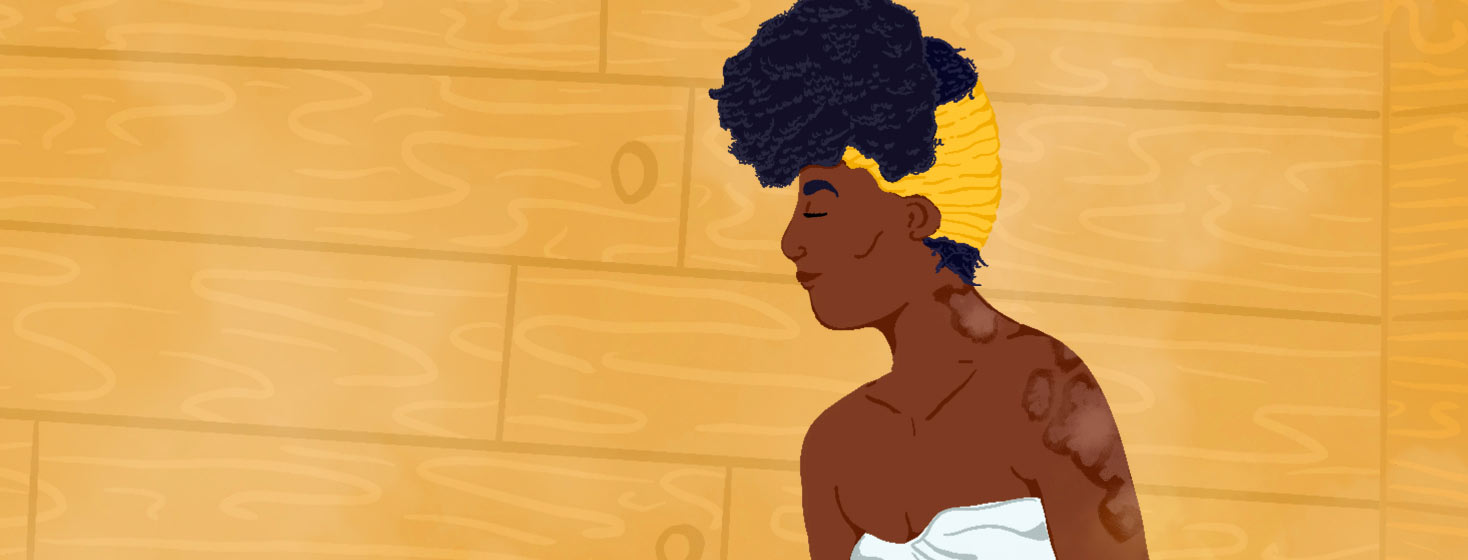Can Using a Sauna Help Psoriasis?
With temperatures as high as 185 degrees, a sauna is a wood-enclosed room warmed by heated stones. Water is periodically poured on the rocks to produce heat.
Some saunas use infrared light to produce heat. The heat produced in traditional stone saunas is dry, with humidity reaching only 10-20%.6,7
How can saunas benefit people with psoriasis?
While sauna therapy produces dry heat, steam rooms generate moist heat. Unlike dry saunas, steam rooms produce high humidity using a steam generator device that boils water into steam and releases it into the air.
Saunas run hotter than steam rooms, though steam rooms will leave you dripping wet, even though both produce sweat.7 While some patients have reported psoriasis benefits from steam rooms, it is essential to note that the clinical data discussed here is related to dry sauna therapy.
Still, more evidence is needed to conclude therapeutic benefits. Talk to your doctor about whether a sauna might be beneficial for you.
Can saunas help psoriasis?
Psoriasis is a condition in which skin cells build up quickly on the skin's surface, leading to itchy and sometimes painful scales and red patches forming. Psoriasis is a chronic condition. However, the symptoms can come and go.1
Several factors can trigger a flare-up of psoriasis, one of which is cold weather. The combination of dry air decreased exposure to sunlight, and cold temperatures contributed.
It is thought that light and heat may contribute to a relief from psoriasis symptoms. In fact, light therapy—exposing the skin to ultraviolet (UV) light—has been found to be effective for some patients.2
Featured Forum
View all responsesSince it is known that flare-ups from psoriasis are more common in cold weather and that light can be an effective treatment, it stands to reason that heat therapy may also be an effective treatment avenue to explore.
One way to treat psoriasis with heat is by using dry or steam saunas. But does using a sauna help psoriasis flare-ups?
How saunas help psoriasis in cold weather
Recent data suggests that most people with psoriasis have symptoms that improve in the summer and worsen in the winter, when humidity levels are lower, and the air is dryer.
Though some patients with psoriasis experience worsening symptoms with excess heat, exposure to heat tends to affect most patients positively. When air is dry and cold during the winter, researchers suggest that the low humidity causes the top layer of the skin to thicken, triggering the immune system to cause inflammation in the skin.
For patients with psoriasis, this can lead to symptomatic flare-ups.3
Sauna therapy is generally thought to have several health benefits, and studies have shown a relationship between sauna therapy and improved cardiovascular health, decreased pain symptoms with certain autoimmune and chronic pain disorders, reduction in moderate depression symptoms, and improved lung function.4
Sauna therapy and psoriasis
Dry sauna therapy has been shown to have positive effects with regard to inflammation. In one study, researchers compared C-reactive protein levels to sauna therapy frequency. C-reactive protein is a blood marker that indicates systemic inflammation.
This or That
Do you have a treatment that helps your psoriasis?
There was an observed decrease in C-reactive protein with frequent sauna therapy in this study. Similarly, dry sauna therapy may effectively relieve the inflammation and skin flare-ups associated with psoriasis.
Sauna bathing does not cause skin drying and may reduce scaling and plaques.5

Join the conversation